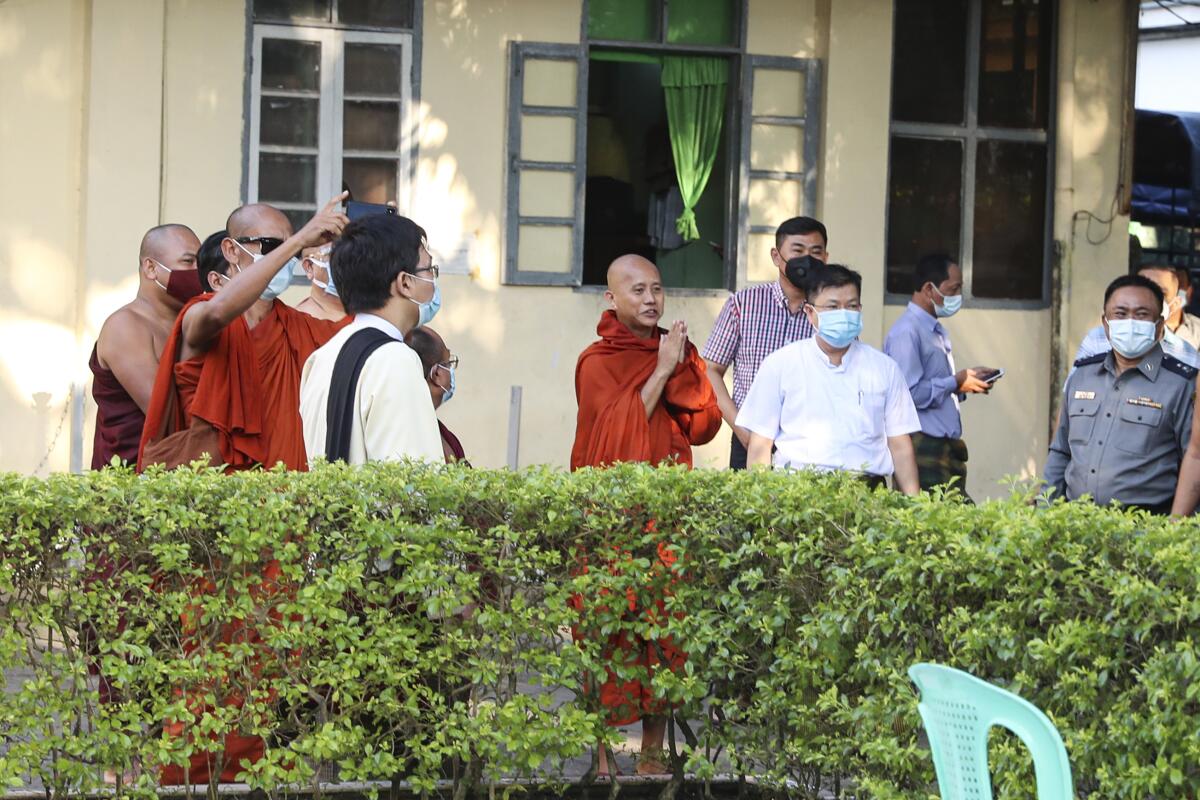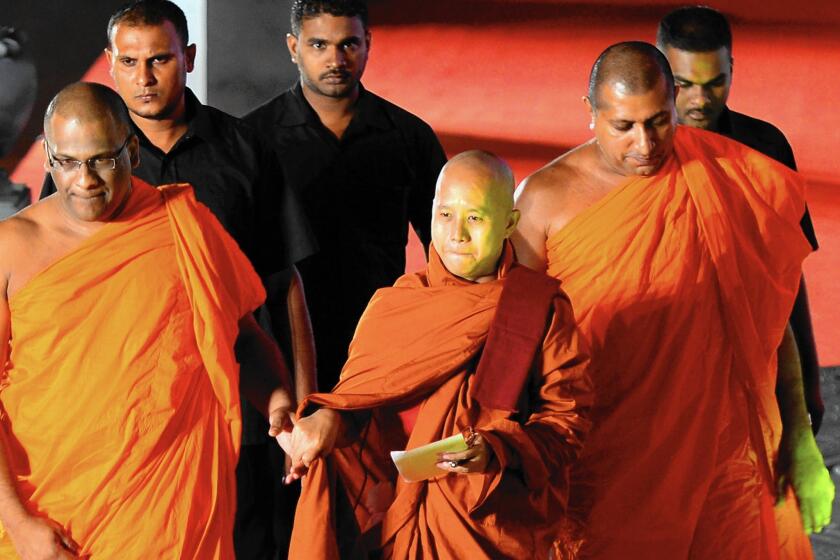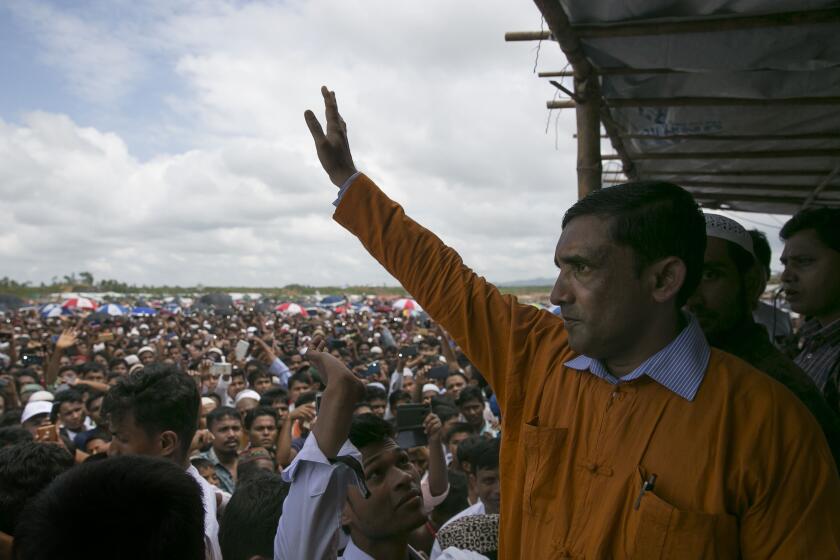Firebrand Buddhist monk surrenders to police in Myanmar

YANGON, Myanmar — A nationalist Buddhist monk in Myanmar noted for his inflammatory rhetoric has surrendered to police, who had been seeking his arrest for more than a year over insulting comments he made about the country’s leader, Aung San Suu Kyi.
The surrender of Ashin Wirathu on Monday came just days ahead of a general election Sunday that Suu Kyi’s ruling National League for Democracy party is expected to win.
“Mainly, I would like to request my fellow monks around the country to ask their followers to vote for the parties that work to protect the country’s race and religion,” Wirathu said to a small crowd of followers outside the police station in Yangon before entering.
Wirathu and his supporters were successful in lobbying for laws making interfaith marriages difficult but endorsed the military-backed Union Solidarity and Development Party that lost to Suu Kyi’s party in a landslide in Myanmar’s 2015 general election. Wirathu has been heavily criticized for fiery anti-Muslim rhetoric that some blame for helping to incite violence against the Rohingya ethnic minority in the western state of Rakhine.
Wirathu’s appeal Monday was seen as another endorsement of the USDP, the main opposition party in parliament and the sole serious challenger to Suu Kyi’s NLD.
In May last year, a court issued an arrest warrant for Wirathu, charging him with sedition for insulting comments he made about Suu Kyi at a nationalist rally while comparing the military’s representatives in parliament to Buddha.
He’s been described as the “Buddhist Bin Laden,” but Ashin Wirathu thinks he has more in common with the world’s most famous fictional spy.
If found guilty, he could be sentenced to three years to life in prison. Under Myanmar law, he would have to be defrocked by Buddhist authorities before he could be arrested.
Wirathu became prominent in 2012 after deadly riots broke out between Buddhists and Rohingya Muslims. He founded a nationalist organization, since disbanded, that was accused of inciting violence against Muslims.
Muslims from other ethnic groups and in other areas also faced disrespect and occasional violence after Wirathu and his supporters launched their nationalist campaign.
Wirathu was able to build upon widespread prejudice in Buddhist-majority Myanmar against Rohingya Muslims, who are seen as having immigrated illegally from Bangladesh, even though many of their families have lived in Myanmar for generations.
Rohingya leader Mohib Ullah’s outspokenness has made him the target of death threats and created headaches for authorities in Myanmar and Bangladesh.
In 2017, attacks by Rohingya militants on police posts triggered a brutal counterinsurgency campaign by the army that caused more than 700,000 Rohingya villagers to flee across the border to Bangladesh for safety.
Wirathu was accused of hate speech, and Facebook shuttered his account in 2018, but he managed to stay on other social networks and gave speeches around the country. The National Monks Council banned him from giving public talks for a year, but its action was not vigorously enforced.
More to Read
Sign up for Essential California
The most important California stories and recommendations in your inbox every morning.
You may occasionally receive promotional content from the Los Angeles Times.












